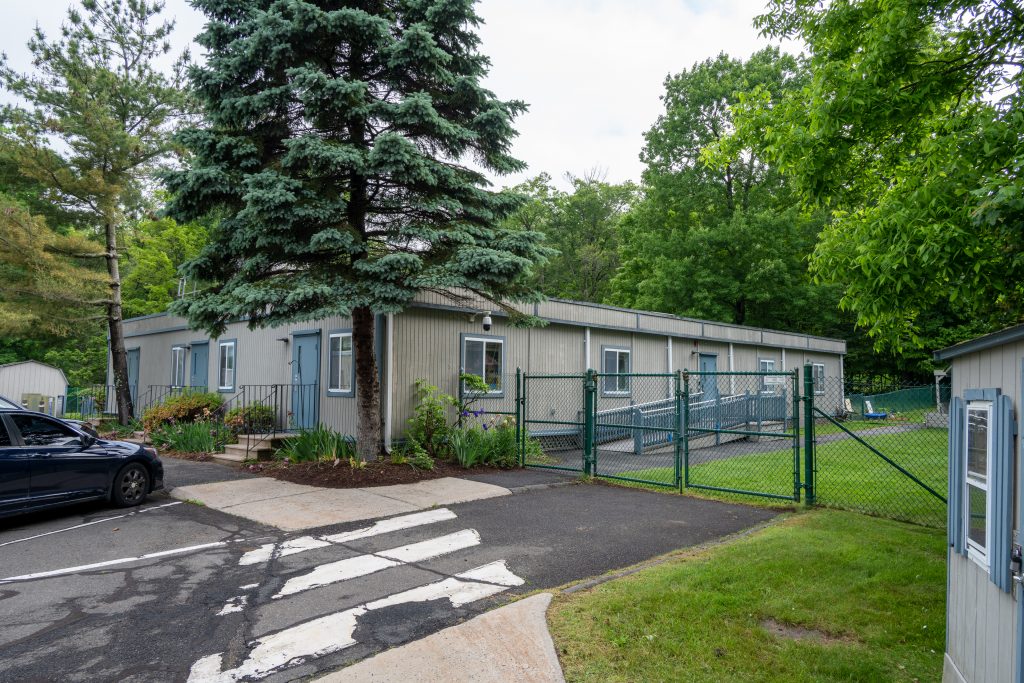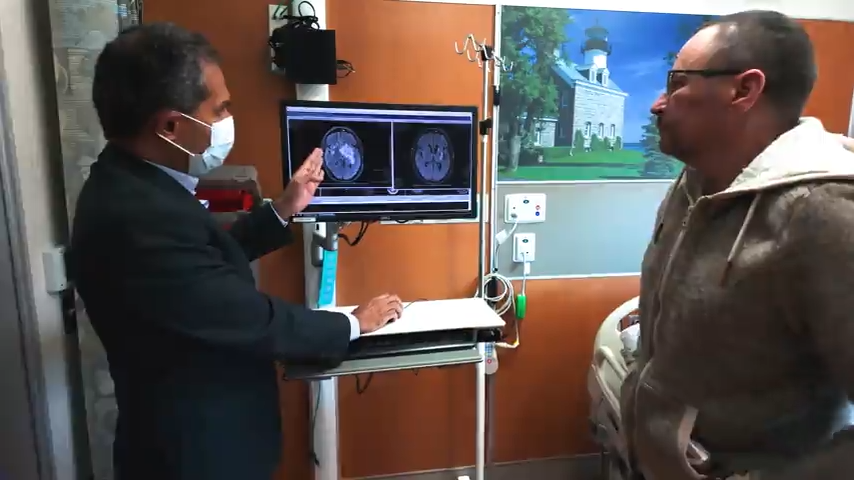The Connecticut Department of Energy and Environmental Protection (DEEP), the Connecticut Office of Policy and Management (OPM), and the Department of Administrative Services (DAS) proudly hosted the annual GreenerGov CT Awards ceremony on June 6.
The event celebrated the exceptional work taken on by agency staff like those at UConn Health to reduce their agencies’ environmental impact and advance Connecticut’s climate and sustainability goals.

UConn Health was honored with this year’s Innovation Award, a special distinction recognizing exceptional public sector sustainability innovation. UConn Health was awarded along with its collaborators from Shelton-based Budderfly and Connecticut Innovations, for leading a 12-month pilot program with the goal of achieving net zero emissions in the academic medical center’s Child Care Center in Farmington.
The innovative pilot program announced by Governor Ned Lamont in February deploys a new technology developed by the company Budderfly to assist in helping the health care system and hospital achieve a net zero carbon footprint and deliver a substantial energy cost savings. The company’s proprietary Ultra High Performance (UHP) heating, ventilation, and air conditioning (HVAC) system will demonstrate its ability to decarbonize and deliver energy savings for government agencies and organizations.
“It truly has been a team effort,” applauds Eric Kruger, vice president of facilities development and operations at UConn Health, who accepted the award for UConn Health at the ceremony.
The ceremony also recognized other “Senior Sustainability Officers (SSOs)” and initiatives implemented to reduce their agencies’ environmental impacts and make them more efficient and environmentally friendly.
“We are so proud of the hard work and creative solutions that staff across state agencies have deployed to reduce environmental impacts and save taxpayers’ money,” DEEP Commissioner and GreenerGov Co-Chair Katie Dykes said. “This initiative demonstrates the potential projects that Connecticut residents and businesses can embrace to save money, use cleaner energy supplies, and throw away less waste.”
“DAS is proud to participate in this year’s GreenGov award ceremony and congratulates all award winners and nominees. In support of the Governor’s directives, our agency prioritizes ‘green’ solutions across our construction, procurement, fleet and facility management initiatives each and every day,” said DAS Commissioner and GreenerGov Co-Chair Michelle Gilman. “We work hand-in-hand with our partner state agencies to implement these important efforts and to create a more sustainable Connecticut for all our residents.”
“The recipients of these awards represent some of the finest in state government and I appreciate the thoughtful collaboration with many agencies to achieve Governor Lamont’s sustainability vision,” said OPM Secretary and GreenerGov Co-Chair Jeffrey Beckham. “Their commitment to protecting our environment through new and innovative processes is a model for others to follow. I applaud all those who are willing to find new ways of doing things that save taxpayer money and provide for a greener state government.”
GreenerGov CT is a collaborative effort led by leadership at OPM, DAS, and DEEP, with SSOs from each executive branch agency leading sustainability initiatives within their departments.
Governor Lamont’s Executive Order No. 1, signed in 2019, called on agencies to recommit to – and expand – the state’s Lead by Example program to reduce energy use, water, waste, and greenhouse gas emissions while lowering operating costs in state government facilities and operations. The governor’s sweeping climate Executive Order No. 21-3 set eight new sub-targets for state agencies to meet regarding clean electricity procurement, organics and food waste diversion, electric vehicle deployment, and more.



